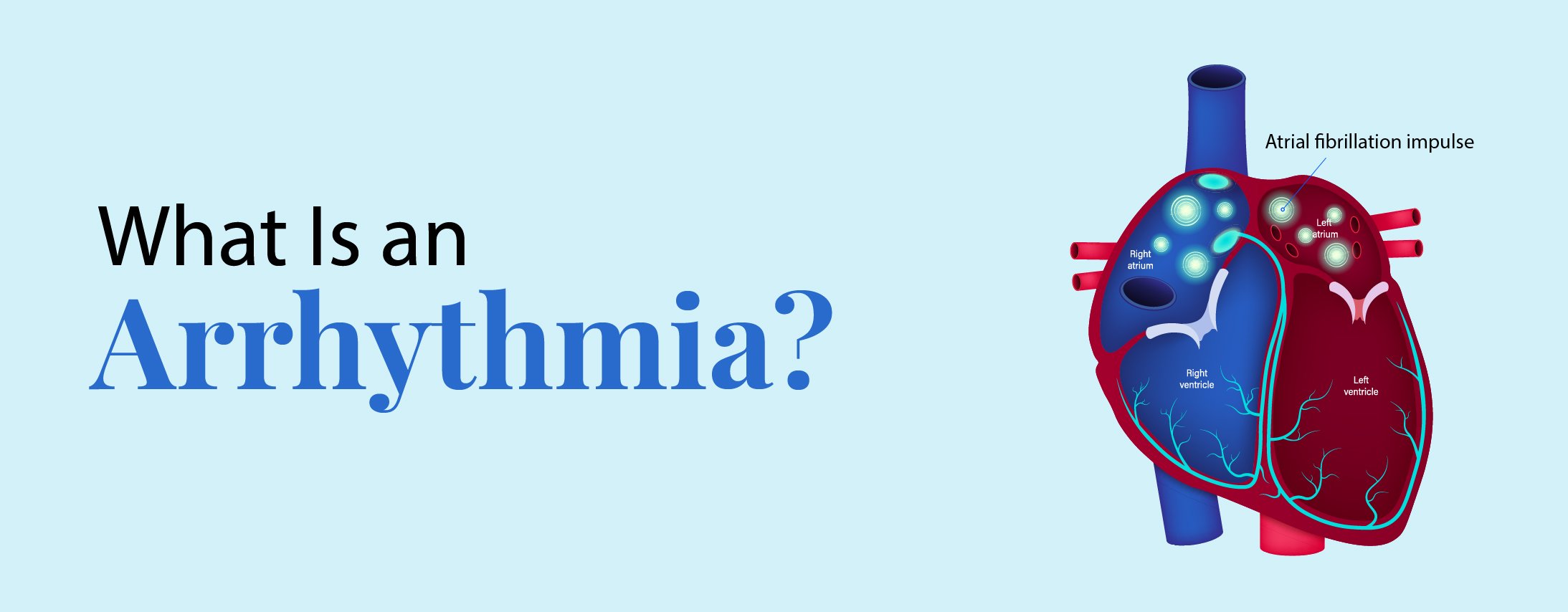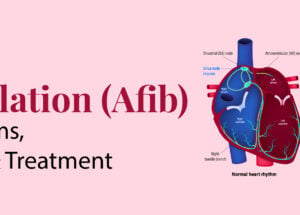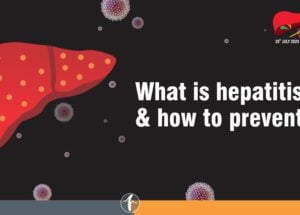What is an Arrhythmia?
May 2, 2025

What is an Arrhythmia?
To pump blood throughout the body, the human heart beats in a rhythmic and synchronized fashion. Arrhythmia, on the other hand, is a disorder that results when this rhythm is disturbed. An arrhythmia is an irregular heartbeat, which can be characterized by an erratic pattern, too fast a heartbeat, or too slow a heartbeat. Some arrhythmias are benign, but if untreated, others can cause major health issues.
People who are aware of arrhythmia’s causes, symptoms, and available treatments are better able to manage the illness and determine when medical intervention is necessary. When the electrical impulses that control the heartbeat become unpredictable, an arrhythmia occurs. In a healthy heart, these impulses originate from the sinoatrial (SA) node, the natural pacemaker. This electrical signal ensures that the heart contracts and relaxes at regular, periodic intervals. When this process is disrupted, the heart may beat irregularly, either too slowly (bradycardia) or too quickly (tachycardia).
Types of Arrhythmias
There are several types of arrhythmias, each with its characteristics:
- Tachycardia – A condition where the heart beats faster than normal, typically over 100 beats per minute.
- Bradycardia – A slow heart rate, usually under 60 beats per minute.
- Atrial Fibrillation (AFib) – One of the most common arrhythmias, where the atria (upper chambers of the heart) quiver instead of contracting properly, leading to an irregular and often rapid heartbeat.
- Atrial Flutter – Similar to AFib but with a more organized rhythm.
- Premature Heartbeats – Early beats that originate in either the atria or ventricles, creating a sensation of a skipped or extra heartbeat.
- Ventricular Fibrillation – A life-threatening arrhythmia where the ventricles beat erratically, preventing the heart from pumping blood effectively.
- Heart Block – A condition where the electrical signals from the atria to the ventricles are delayed or blocked, leading to a slow or irregular heartbeat.
Symptoms of Arrhythmia
Arrhythmias can present in different ways depending on the type and severity. Some individuals may not notice any symptoms, while others may experience noticeable discomfort. Common symptoms include:
- Palpitations – A feeling of the heart skipping beats, fluttering, or beating too hard.
- Dizziness or Lightheadedness – A sensation of being unsteady, which can occur due to reduced blood flow to the brain.
- Shortness of Breath – Difficulty breathing, especially during physical activity or rest.
- Chest Pain or Discomfort – A pressure or pain in the chest, which should always be evaluated by a medical professional.
- Fatigue – Persistent tiredness, which can result from the heart’s inability to pump blood efficiently.
- Fainting or Near-Fainting – A sudden loss of consciousness or feeling like you might pass out, which could be a sign of a severe arrhythmia.
If any of these symptoms occur frequently or suddenly worsen, medical attention should be sought immediately.
Causes and Risk Factors
Arrhythmias can be caused by various underlying health conditions, lifestyle factors, or genetic predispositions. Some of the most common causes include:
- Heart Disease – Conditions such as coronary artery disease, high blood pressure, or heart failure can lead to arrhythmia.
- Electrolyte Imbalances – Minerals like potassium, sodium, calcium, and magnesium play a role in heart function, and imbalances can trigger arrhythmias.
- Thyroid Disorders – An overactive or underactive thyroid can impact heart rate and rhythm.
- Excessive Alcohol or Caffeine Intake – High levels of alcohol or caffeine consumption can stimulate irregular heart rhythms.
- Smoking and Drug Use – Tobacco and certain recreational drugs can increase the risk of developing arrhythmias.
- Severe Stress or Anxiety – Emotional and physical stress can lead to arrhythmias by affecting the body’s nervous system.
- Genetic Factors – Some people inherit a predisposition to arrhythmias, making them more susceptible.
- Certain Medications – Some prescription and over-the-counter medications can affect heart rhythm.
Diagnosis of Arrhythmia
Diagnosing an arrhythmia typically involves a combination of medical history, physical examination, and diagnostic tests. Common tests include:
- Electrocardiogram (ECG or EKG) – A test that records the electrical activity of the heart to identify irregularities.
- Holter Monitor – A portable ECG device worn for 24-48 hours to capture irregular heartbeats over time.
- Event Monitor – A device used over a longer period to detect sporadic arrhythmias.
- Echocardiogram – An ultrasound of the heart to assess its structure and function.
- Stress Test – A test that monitors the heart’s response to physical activity.
- Electrophysiology Study (EPS) – A more detailed test that maps the electrical pathways of the heart to pinpoint abnormalities.
Treatment and Management
The kind, severity, and underlying cause of an arrhythmia dictate how it should be treated. Some people may not require medical care, whilst others may. Typical approaches include of:
Lifestyle Modifications
- Heart-Healthy Diet – Consuming a diet rich in fruits, vegetables, lean proteins, and whole grains can support overall heart health.
- Regular Exercise – Engaging in physical activity as recommended by a doctor can help maintain a healthy heart.
- Stress Reduction – Practicing mindfulness, meditation, or yoga can help manage stress and reduce arrhythmia episodes.
- Avoiding Stimulants – Reducing alcohol, caffeine, and tobacco consumption can lower the risk of arrhythmias.
Medical Interventions
- Heart Rate Control – Managing the heart rate with prescribed treatments.
- Cardioversion – A procedure that restores normal heart rhythm using electrical shocks or medications.
- Ablation Therapy – A minimally invasive procedure that targets the problematic heart tissue causing the arrhythmia.
- Implantable Devices – Pacemakers or defibrillators can help regulate heart rhythms in severe cases.
Conclusion
While arrhythmias can be concerning, many people live normal and active lives with proper management. Routine medical check-ups, adherence to treatment plans, and maintaining a heart-healthy lifestyle can help control symptoms and prevent complications.
If you or a loved one experiences symptoms of arrhythmia, seeking medical guidance is crucial. Early detection and appropriate treatment can make a significant difference in maintaining heart health and overall well-being.





